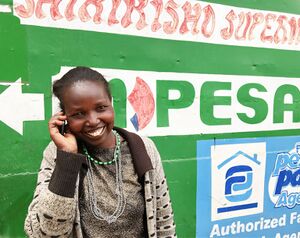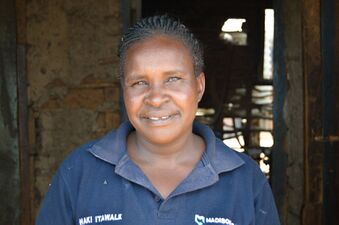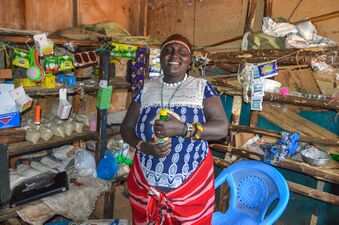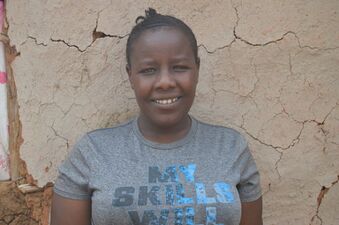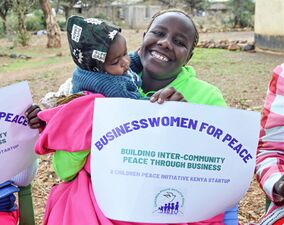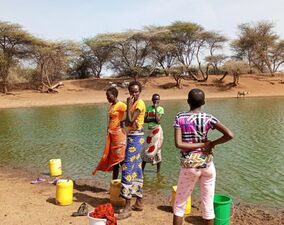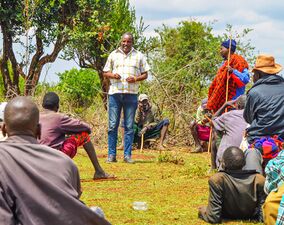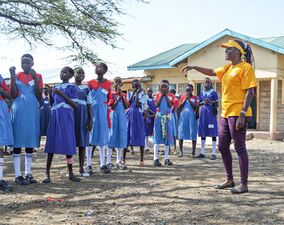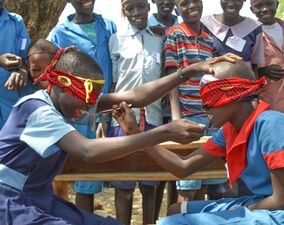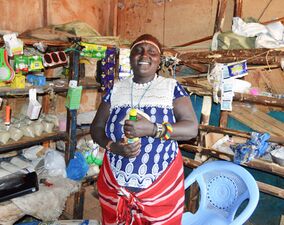Invest in 10 women entrepreneurs in Northern Kenya: Difference between revisions
(Updated solutions) |
(Updated projects) |
||
| Line 28: | Line 28: | ||
|scraped_from=GlobalGiving | |scraped_from=GlobalGiving | ||
|feature_image=File:josephine_mpease_1700_Large.jpg|Josephine coordinates the Samburu network team | |feature_image=File:josephine_mpease_1700_Large.jpg|Josephine coordinates the Samburu network team | ||
|images=[[ | |images=[[File:ph_56379_220026.jpg|Joyce in front of her store which sells petrol,File:ph_56379_220028.jpg|Chepsait a Pokot businesswoman in her shop,File:ph_56379_220029.jpg|Naanyu outside her shop,File:3400_x_1700_Large.jpg|Naanyu one of the WEN network founding members,File:water_1700_Large.jpg|Women are facing a water crisis,File:hilary_1700_Large.jpg|Hilary with herders at the cow camp,File:monica_1700_Large.jpg|Monica at the May peace camp,File:girls_at_camp_1700_Large.jpg|Girls from the Pokot and Ilchamus tribes at camp,File:mrs_y_amaya_1700_Large.jpg|Gladys leads the team of Pokot businesswomen,]] | ||
|coordinate=, | |coordinate=, | ||
|geo_id=192950}} | |geo_id=192950}} | ||
Latest revision as of 20:44, 4 August 2023
| Organization | The Advocacy Project |
|---|---|
| Region | Zimbabwe |
| Website | Website |
| ProjectLeader | Iain Guest |
| Linked Problems & Solutions
|
|---|
Our Kenyan partner Children Peace Initiative Kenya (CPIK) is seeking $15,000 to help 10 women entrepreneurs from the Pokot and Samburu tribes launch small businesses and trade with each other. This innovative approach will produce incomes for these women, strengthen ties between their communities and show how women can build peace in fragile environments. Josephine (photo), a Samburu businesswoman who trades maize across tribal lines, inspired the startups and will head the Samburu network.
Challenge
The pastoralists of Northern Kenya are reeling from years of cattle raiding, drought and now climate change. This deadly combination is destroying natural resources - particularly water and pasture land - that sustain their herds and livelihoods. This, in turn, exacerbates the conflict and drought that kill their cows. Women are especially affected. They see their children threatened by violence, their kitchen gardens drying up and their talents going unused.
Long-Term Impact
CPIK hopes that the businesses can be self-sustaining by the end of 2023. Other start-ups are also in preparation, including one bringing pastoralists from different tribes together to share pasture-land and water during drought. CPIK hopes that each successful project will offer practical solutions based on friendships and common interest to the threat caused from climate change and conflict.
References
- http://www.advocacynet.org/
- https://cpikenya.org/
- https://www.advocacynet.org/author/jholladay/
- https://www.youtube.com/watch?v=ofVseRveFwg
Project Gallery
